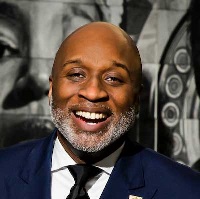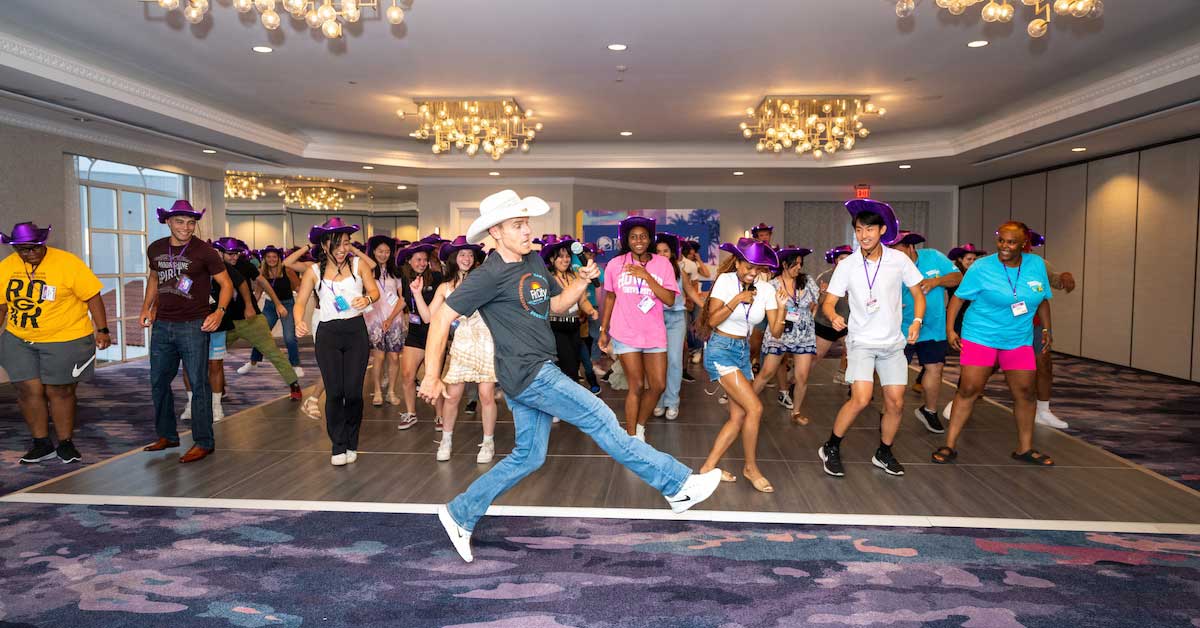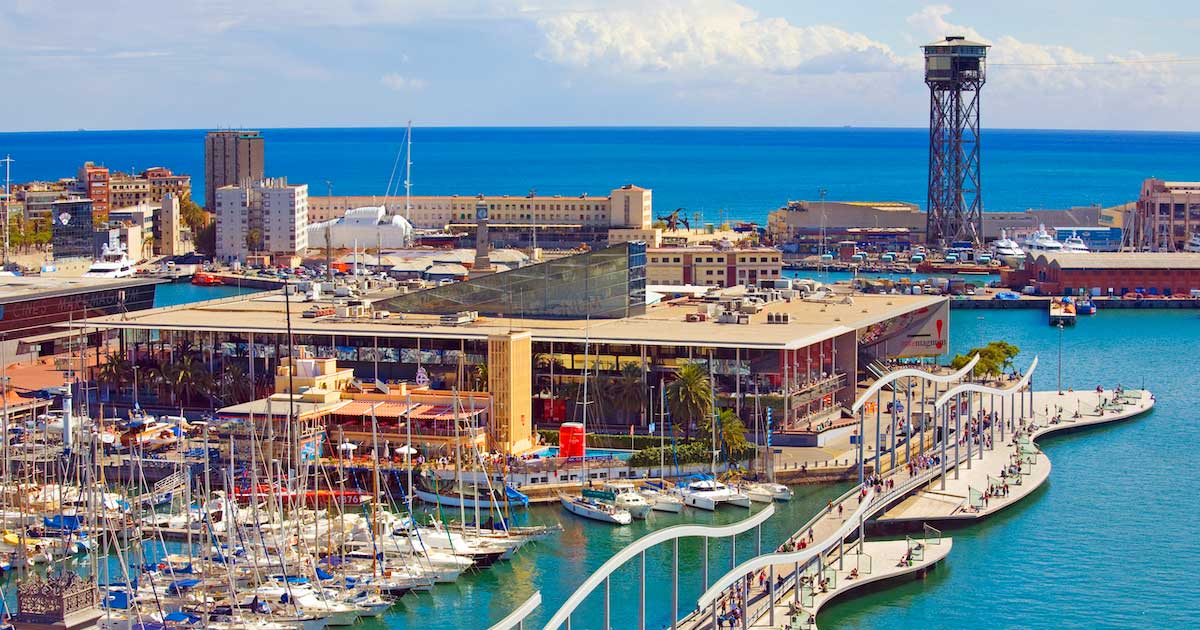Industry leaders discuss the importance of advocacy.
Reggie Aggarwal, CEO and Founder, Cvent
.tmb-thumb200.jpg?Culture=en&sfvrsn=b913bd5a_1)
In our more than 20 years in business, what we’ve found is that when faced with a seemingly insurmountable challenge, what has helped us through the storm is the support and advocacy of the people behind the Cvent brand—our employees and our customers. Now, as we all look back on what was one of the most difficult years the industry has ever faced and we navigate the times ahead, our collective success depends on our ability to advocate not for just our businesses, but for the industry itself.
Meetings and events boost the global GDP by more than $1.5 trillion and impact nearly 26 million jobs. The economic significance of our industry is undeniable. And by supporting each other, by being an advocate for the power of the human connection, people will realize how important our industry truly is, and it’ll rise again.
Carina Bauer, CEO, IMEX Group

As our industry has been ravaged by the fallout from the pandemic, never before has advocacy been so crucial—in each individual town, city, region and country. In the U.S., after the financial crisis our industry had already come together powerfully to create the Meetings Mean Business coalition under U.S. Travel; but we need to do more and sustain our efforts even as our world begins to brighten in the months and years ahead. Those industries that have invested in powerful national and global advocacy over many years fared better than ours during 2020.
It’s so important that we use advocacy to build a strong, united message about not only focusing on the direct economic impact of business events, but the legacy-building and business-building effects that the industry produces. Only when our message is consistent, united and backed by data will those outside our industry truly understand the benefits that business events deliver. It’s absolutely imperative that we focus on this in the decade to come—without doing so, we risk being at the back of the queue again when the next crisis hits.
Mark Cooper, CEO, IACC

For advocacy to really make a difference in a required situation, it relies on months or even years of developing strong relationships between industry and governments—relationships built on trust and understanding. This year showed how the delays in having little in the way of established connections resulted in misunderstanding and wasted time. Conferences and meetings should have been considered different from mass gatherings long before 2020—just one example that we now know the consequences of being grouped together into the wider events or hospitality industries.
We have a chance to learn and build now for the next time the business events industry needs to have strong advocacy relations in place.
Kelly Craighead, President and CEO, Cruise Lines International Association (CLIA)

Leisure travel and, by extension, cruising gets you out of the house, brings people together, introduces new surroundings and creates lifetime memories. It also supports millions of jobs, many of which have been severely impacted as a result of the pandemic. Cruise Lines International Association’s (CLIA) membership includes tens of thousands of travel advisors, tour operators and other service providers who are vital to a successful cruise industry, all of whom will be important to meeting the pent-up demand that will come once the health emergency is over. Unfortunately, without help, many of these small and medium-sized businesses will not survive.
Advocating on their behalf, and on behalf of the safe resumption of cruising, is at the core of what CLIA will continue to do next year. Creating research-backed communications, developing substantive policy positions, stewarding stakeholder relationships and cultivating a diverse and energized base of grassroots supporters is how CLIA advances our members’ common interests responsibly and effectively. During this challenging time, and as we look ahead to a strong recovery, we know that advocacy is truly a team activity and an absolute necessity to lay the foundation for responsible, sustainable growth in the future.
Aoife Delaney, CIS, CITP, President, Society for Incentive Travel Excellence (SITE); Director of Marketing and Sales, The DMC Network

Advocating for incentive travel is a crucial focus for the Society for Incentive Travel Excellence (SITE) and a key pillar for the SITE Foundation. By making the case for incentive travel we serve our members, our industry, the business world and society at large. Our members prosper, our industry thrives, the business world is given a tool that rewards employees while building workplace culture and the transformational power of travel is unleashed for societies all over the world. Incentive travel brings clear, demonstrable and quantifiable benefits in terms of tangible return on investment.
However, it also has an intangible, qualitative and enduring impact on individuals, corporations and society at large because travel opens minds and hearts and makes us more understanding and tolerant. SITE’s advocacy on behalf of incentive travel is more important than ever as we recover from the pandemic.
David DuBois, CMP, CAE, FASAE, CTA, President and CEO, International Association of Exhibitions and Events (IAEE)

The exhibitions and business events industry has suffered tremendous losses and interruptions. In 2020, our industry came together to support many advocacy initiatives, including Exhibitions Mean Business, Go Live Together and the excellent efforts led by the U. S. Travel Association, including the Meetings Mean Business coalition. Those valuable programs must continue to take the lead and enhance our efforts to educate government officials (at the federal, state and city levels) in order to secure additional relief and stimulus funding for our industry. When you see a “call to action” request, please take the time to respond and support our advocacy efforts.
Jason Dunn, Immediate Past Chairman, National Coalition of Black Meeting Professionals; Group Vice President, Diversity, Equity and Inclusion, Cincinnati USA CVB

I am a living testament to the power of advocacy. Had it not been for organizations like the National Coalition of Black Meeting Professionals, people who look like me would not have many of the opportunities available to many of us today. As an industry, we have to stop being polite and advocate with grit and in nontraditional ways with a broader level of participation from grassroots organizations. By supporting tourism, one is in effect empowering communities and local economies. We must speak to our ability to create jobs, reinvest tax dollars, sustain local ecosystems and articulate in understandable terms our vast impact and finally support politicians that support us in a public way. This will do the following.
1) Give us some grit and self-esteem as an industry.
2) Articulate the value of our industry to broader audiences in a way that is clear and with passion.
3) Activate the regional, state and federal electorate to hold elected officials accountable for decisions that adversely impact the hospitality industry.
4) Make the industry more dependent on each other and resistant to operating within silos.
Senthil Gopinath, CEO, ICCA

Advocacy is an integral part of our industry. The business events industry creates enormous socioeconomic impact globally. The International Congress and Convention Association (ICCA) has been working extensively on enhancing global advocacy to ensure the growth and impact of ICCA members. And now advocacy at every level has become fundamentally imperative. We need to make the policymakers aware of the economic recovery and renewal process and how it can be achieved through embracing the business events industry. The business events industry is the “first phase” industry and can bring economic provocation to cities and destinations.
We as an industry should consider advocacy as a vital role played by all of us. It’s a compulsory process and not a supplementary process. We need to highlight the foremost story of our industry through attentive communication channels and, most importantly, in a collaborative manner. It is important to encompass all our activities and submit implementable solutions to the policymakers. The advocacy efforts should be focused on all sectors and at national and regional levels. The advocacy approach should be results-oriented rather than about creating awareness. The COVID situation has stressed the importance of advocacy and it has also emphasized the need for a collaborative effort by all of us.
Richard Harper, Executive Vice President, HelmsBriscoe

The scope and scale of the meeting industry is far greater than anyone ever imagined. It impacts businesses, livelihoods, relationships, partnerships, economies and so much more. Those of us in the industry know this, but there are many outside of our industry who do not. Our job—each and every one of us who benefits from face-to-face meetings—is to make sure we educate and advocate every day to protect and promote our essential industry. This isn’t a “nice-to,” it’s a “must-do.” For companies like ours, it’s equally as important to advocate for our clients and partners. It will take a team effort to recover, but we have no doubts that the industry will come back stronger than ever.
Sherrif Karamat, CAE, President and CEO, PCMA

As a business, we believe that, just as in our personal lives, the key to our own recovery has been helping others. Although it might have seemed like it this year, the world won’t stand still when a tragedy happens—it’s rather the opposite. Societal issues that have been fully or partially ignored in the past don’t just fester anymore, they spread at a far more rapid rate. The “business events industry” is a meta industry and, thus, uniquely positioned to not just drive economic outcomes but to truly advocate for better social good for all peoples. This has taken on additional importance and urgency with the advent of the pandemic, social injustice, the rise of nationalism and, of course, the resulting economic toll. There is no time like the present to unify and advocate for those we are here for.
Dana Macaulay, CSEP, President , International Live Events Association (ILEA)

While advocacy isn’t a pillar of the International Live Events Association’s (ILEA) mission, we recognize its growing importance to the entire events industry—not only as we recover and rebuild from the pandemic, but also for the long-term future of our global community. It’s so important that our voices and the interests of the many professionals who bring people together are heard, acknowledged and answered. That’s why ILEA has entered into a long-term partnership with the Live Events Coalition, which was formed specifically in response to COVID-19 to provide advocacy for live events professionals and our industry. Working together, we’ll ensure that our members have the resources and support they need to help bring the world back together.
David Peckinpaugh, CMP, CIS, President, Maritz Global Events

Why advocacy is important to me: I believe advocacy is important to ensure we promote the benefits and power of our industry to stakeholders—both within our industry and outside of our industry. Most importantly, as we advocate externally to local, regional, state and federal governments, they can better understand the tremendous impact our industry has on the economy, job creation and economic development worldwide.
How will advocacy help move our industry forward into recovery? The events industry has long been regarded as the invisible industry. When done correctly, advocacy can clarify the collective power of our industry, helping us to avoid becoming misunderstood and undervalued. At a time like this, advocacy for financial support of everyone involved in the events industry—from individuals to organizations—is critical to our survival. It is essential that our advocacy efforts are aligned as an industry and are reaching the right audiences. We must stop talking to ourselves and reach those that have the power to make critical decisions to help our industry recover and move forward.
Paul Van Deventer, President and CEO, Meeting Professionals International (MPI)

The live business events industry drives innovation, social advancement and economic growth. It is responsible for the employment of millions of professionals globally, provides countless diverse job opportunities and career paths and generates tax revenues that support local communities. But, frankly, that value is not broadly recognized or understood outside of our industry. Advocacy therefore is critical to telling the story of the power and value of business events and how our industry can be a leading driver of the global economic recovery.
As demonstrated after the 2008 financial crisis, when many voices speak in unison with a clear and consistent message, we can catch the world’s attention. Today, as we find our industry decimated by the global pandemic, it is now more critical than ever to stand together and advocate for live business events. Every professional in our industry should take it as a personal mission to call attention to the power of business events, ensuring that our industry is at the forefront of economic investment and global economic recovery. Now is the time to join together in unison and well-orchestrated harmony to ensure our voice and our industry can play a critical role on the way to a sustainable global economic recovery.
Don Welsh, President and CEO, Destinations International

Never has the importance of convention and visitors bureaus (CVBs) and tourism boards been more important than during the global pandemic and the recovery. CVBs have always been a critical ally to the events and meeting industry, providing meetings of all sizes with community connections, thought leadership and event expertise.
During the pandemic they have been working closely with their local, regional and state officials and stakeholders to develop safety measures and common messaging, while partnering with the health and medical communities to bring together the most current resources for both residents and visitors alike.
This sort of collaboration will be critical as event organizers start to rebook meetings in these destinations. When meeting planners are ready to book their next meeting, the destination’s CVB will have the latest local data and health guidelines readily available in order to make sure that the meeting is held to the highest of safety standards.


.jpg?sfvrsn=96553155_1)




